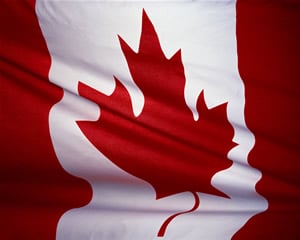Canada: Inadequate Health Care for First Nations and Inuit. “High Risks of Avoidable Deaths”
Updates: Coping with Oppression in Canada

In August 2015 the CBC reported the results of a study from Statistics Canada showing risk of avoidable death for First Nations peoples twice that (in some cases five times that) of non-natives. On January 15th, 2016, it featured a plea by the Ontario First Nations Regional Chief, Isadore Day, that Canadians deal with the fact of inadequate health care for aboriginal peoples.
The CBC notes that according to the Ministry of Health TB rates are five times the general population for First Nations people, and fifty times the general population for the Inuit. If verifiable these disastrous figures would show something of an improvement.
In 2009 Night’s Lantern reported UNICEF‘s findings that noted the tuberculosis rate among Canadian aboriginal people was 90 times the national average for the years 2004 to 2006.
In 2013 Night’s Lantern noted news reports of the rate of Inuit tuberculosis as 186 times that of native born non-aboriginals. Sources of reliable information concerning damages to Canadian First Nations were intentionally removed by the Harper government in 2012 when the Conservative government de-funded the National Aboriginal Health Organization (NAHO). Studies linking TB rates to Canada’s poverty levels are also not easily available.
Lack of transparency raises issues of the government’s enduring intentions. Historically both disease and lack of adequate health care have been used as a weapon. To my understanding, aboriginal communities of North Western Ontario do not have resident doctors. The CBC noted last October that 10 First Nations in Ontario’s North West have gone without safe tap water for ten years, while citing a Canadian Journal of Rural Medicine report of “dramatic increase in invasive disease.” The recent rate of sepsis and pneumonia is estimated as about 20 times that of Calgary. The rate of rheumatic fever is reported as 75 times higher than Canada’s general population.
The statistics are so far outside the norm that a continuing lack of normalization implies intent by the government and calls into force Article II b and c of the Convention on Genocide. Despite occasional highly placed political appointments, a genocide warning for Canadian Aboriginal people remains in effect.
Partial sources online:
“First Nations adults more than twice as likely to die from avoidable causes,” Aug. 19, 2015, CBC News; “First Nations leaders cite deplorable health conditions, urge action,” Kristy Kikup The Canadian Press, Jan. 15, 2016, CBC News; “Bad water in First Nations leads to high rate of invasive infection, doctor says,” Jody Porter, Oct. 26, 2015, CBC News; “Rheumatic fever rates in some Ontario First Nations 75 times higher than rest of Canada,” Jody Porter, Oct. 22, 2015, CBC News.

